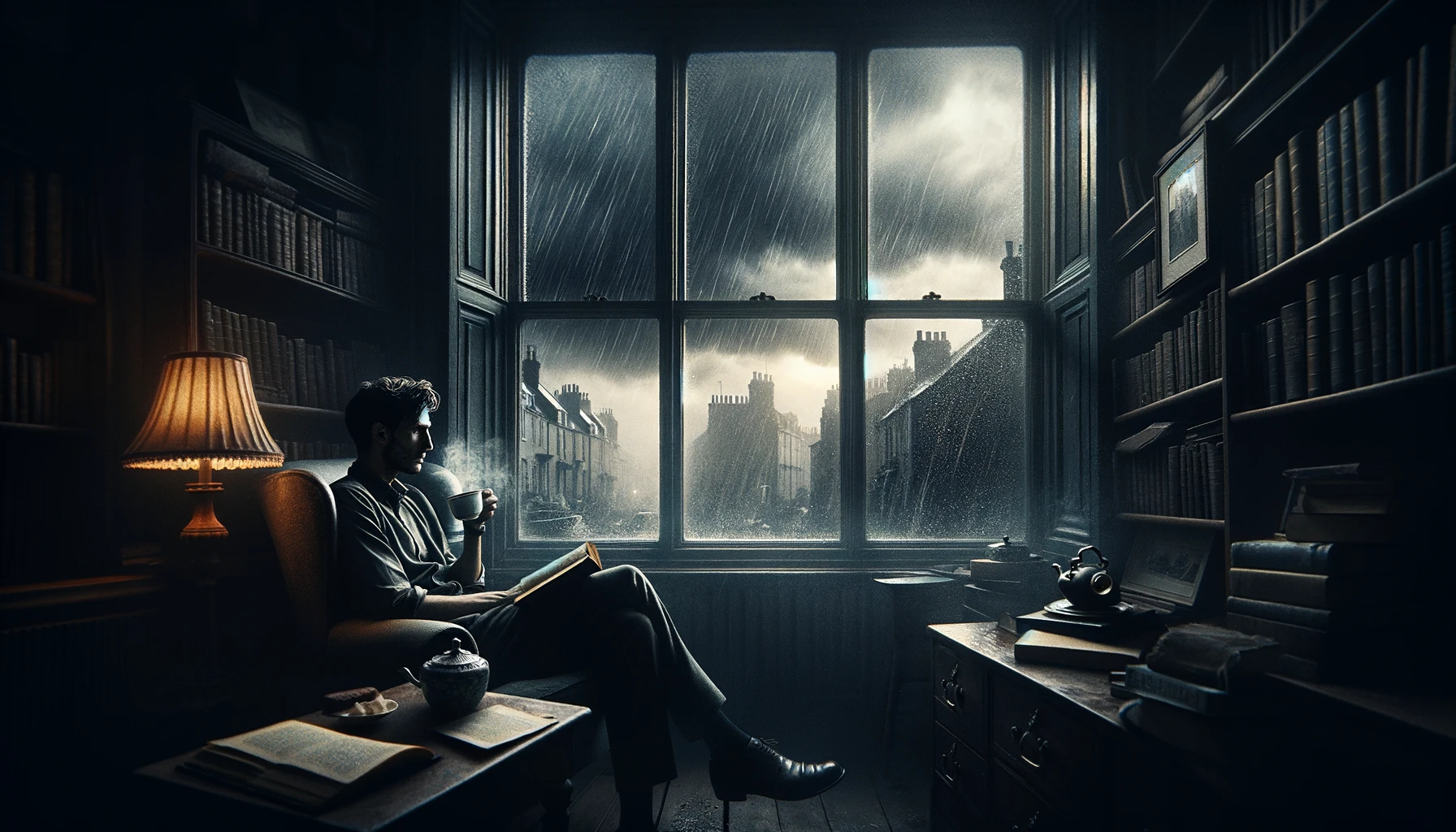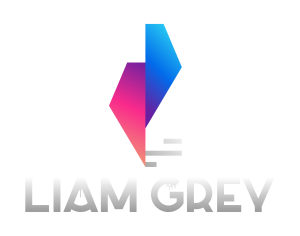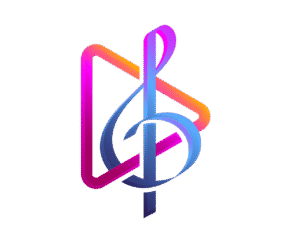James always found a peculiar comfort in rainy days with their grey skies and the rhythmic patter of droplets against the windowpanes. It was as if the world outside mirrored his internal solitude, making him feel less alone. On this particular afternoon, he was nestled in his favourite armchair, a cup of tea cooling beside him, lost in the pages of a well-worn novel. The storm outside brewed more intensely as gusts of wind ushered in a chorus of protesting tree limbs and swaying shadows.
His phone, usually a silent companion, erupted into life, its ringtone slicing through the tranquility of the rain-soaked room. James glanced at the screen an unknown number. With a hesitant hand, he answered.
“Hello?”
The voice that greeted him was crisp and detached, as if all the world’s warmth had been drained away. “Is this James Carter?”
“Yes, speaking,” he replied, his voice a mixture of curiosity and unease.
“This is Officer Milne from the Seattle Police Department,” the voice continued, each word measured and heavy. “I’m sorry to inform you that there has been an accident involving a Mr. Evan Taylor. Are you related to him?”
The world seemed to pause, the background noise of rain fading into a hushed whisper. Evan. His heart stuttered, his grip tightening around the phone. “Yes, he’s my boyfriend. What happened? Is he okay?”
There was a pause, the kind that seemed to stretch and warp time, filled with ominous weight. “I’m very sorry, Mr. Carter. Evan was involved in a traffic collision early this morning. He passed away at the scene.”
The words crashed into him like the storm outside his windows. Passed away. The phrase echoed in his mind, unreal, impossible. His voice was suddenly foreign to him, weak, distant. “No, you must be mistaken. We were just texting last night…”
“I’m truly sorry for your loss, Mr. Carter. The incident is still under investigation, but it appears to have been a tragic accident. We will need you to come down to the station to identify”
James barely heard the rest. His hand moved to end the call, his movements robotic. The phone slipped from his numb fingers, landing softly on the thick carpet. He stared at it, the device that had delivered the catastrophic news, now as silent as the void that was beginning to spread inside him.
The rain intensified, battering against the windows with renewed fury, as if to mirror the turmoil he felt. How could the world continue to spin? How could people go on with their lives when his had just shattered into a million irreparable pieces?
His thoughts spiralled chaotically. Evan, with his vibrant smile that could light up the darkest days, his gentle touch that could calm the deepest fears how could he be gone? They had built a life together, weaving their dreams and hopes so tightly that James couldn’t tell where his ended and Evan’s began.
The apartment they shared now felt like a tomb, each room filled with ghosts of moments they had captured together. Laughter seemed to echo off the walls, a cruel reminder of a happiness that was snatched away too soon. James’s legs felt weak, his body heavy as he stood from the chair. He wandered through their home, touching objects that Evan had last touched, his heart breaking with each familiar sight.
He stopped in front of the fridge, his eyes catching sight of a magnet they had picked up on a trip to the coast a silly, whimsical thing that Evan had insisted they buy. Below it is a grocery list in Evan’s neat handwriting, with mundane items that would never be bought. James reached out, tracing the letters as if he could channel some essence of Evan still lingering there.
The pain was immense, a physical ache that radiated through his chest, constricting his breathing. He leaned against the wall, his whole body shaking as sobs began to wrack him. The sound was hollow, filled with a despair so deep it seemed endless. He slid down to the floor, his knees pulling up to his chest, his head buried in his arms. The grief was a tidal wave, overwhelming him with its fierce, unrelenting force.
As the hours passed, the storm outside began to wane, the violent winds tapering to gentle whispers. The apartment grew dark, the only light coming from the streetlamps outside, casting long shadows across the room. James felt as if he were in a daze, the world around him muted, distant.
Eventually, he stood, moving mechanically to turn on a lamp. The light seemed harsh, too bright against the dark grief that filled him. He walked to the window, pulling back the curtain slightly to look out at the wet streets below. The city seemed unchanged, the rain having washed away any trace of the day’s chaos. Cars passed by, and people hurried under umbrellas, all oblivious to the heartbreak that had invaded his life.
His reflection stared back at him from the glass, a ghostly image superimposed over the night scene. His eyes were red, his face pale and drawn. He hardly recognized himself. The future, once bright with promise and possibility, now stretched out before him, dark and uncertain.
He thought of all the plans they had made, the trips they would never take, the life they would never live. How was he supposed to move forward when his reason for everything was gone? How could he face the days knowing Evan would never be by his side again?
The night dragged on, each second a reminder of his new reality a reality without Evan. As he finally turned from the window, the emptiness waiting to engulf him once more, James realized the hardest part was yet to come. Mourning was not just about coping with the loss but about learning to live with a piece of himself forever missing. How to start this journey, he did not know, but as the first light of dawn began to edge the horizon, he understood that somehow, he had to try.

In the weeks following Evan’s death, the nights became James’s greatest adversary. As darkness descended, so too did the overwhelming silence of the apartment they once shared. It was in these quiet hours that the reality of Evan’s absence became unbearably tangible. The bed they had once shared now felt vast and empty, and James lay there each night, surrounded by the ghostly imprints of a presence forever gone.
Sleep, when it came, was neither restful nor relieving. It brought with it a different kind of torment nightmares that were vivid and visceral. In these dreams, James was transported back to the moments before the accident, a bystander to a tragedy he could neither prevent nor escape.
He would see Evan, vibrant as ever, laughing as he got into his car, waving goodbye without a care in the world. The dream would shift rapidly, the scenery blurring as if fast-forwarded by a cruel director until the moment of the crash. The sound was deafening, a horrifying symphony of bending metal and shattering glass that would jolt James from his sleep, sweating and screaming into the darkness.
The aftermath of these dreams left him paralyzed in bed, his heart pounding fiercely against his ribcage as if trying to escape a body too wracked with grief. Sometimes, he would reach out to the empty space beside him, half-expecting to find Evan there, only to be met with cold sheets and the bitter sting of reality.
Haunted by these nightmares, James’s days began to blur together, each one as gray and indistinguishable as the next. His friends and family worried, urging him to seek help or to find solace in their company. But how could he explain that the very act of living felt like an impossible task? That the world without Evan was a puzzle whose pieces no longer fit?
Isolation became his refuge and his prison. James spent hours sitting by the window, staring out at a world that moved on without hesitation. Children played in the park across the street, couples walked hand in hand, and the sun rose and set with indifferent regularity. Life went on outside his window, but inside, time stood stubbornly still.
As his mental state frayed, James’s physical health declined. Meals were forgotten, and nights spent tossing and turning led to days fueled by nothing more than coffee and the odd piece of fruit. His once neat appearance grew dishevelled, and mirrors became his enemy, reflecting a man he no longer recognized.
One evening, as he lay in bed wrestling with the sheets that seemed to tangle with his every turn, the room suddenly felt suffocatingly small. Panic gripped him, a visceral response that clawed at his chest and tightened his throat. Gasping for air, he stumbled to the living room, his vision blurred by unshed tears.
The walls of the apartment were adorned with pictures of Evan smiling, laughing, living. Each image was a reminder of all that had been lost. In a moment of overwhelming pain, James swept a hand across a shelf, sending frames crashing to the floor. Glass shattered, the sound echoing through the empty apartment, a physical manifestation of his shattering heart.
Sinking to his knees amidst the debris, James let go, tears streaming down his face as he cried out in a voice hoarse with despair. He cried for Evan, for himself, for the future they would never have. He cried until he had no tears left, until he was numb and empty, lying among the remnants of a life that once was.
In the days that followed, his apartment remained unchanged. The broken frames on the floor remained untouched, and shards of glass caught the light and threw scattered rainbows across the walls. James moved among them like a ghost, his movements slow and purposeless.
It wasn’t until one particularly difficult night, as he lay awake staring at the ceiling, that a thought occurred to him a desperate, clinging thought that perhaps there was a way to dull the sharp edges of his grief. His mind turned to the medicine cabinet, to the bottles that promised relief from pain, though not the kind he suffered.
With trembling hands, he gathered the bottles, lining them up on the kitchen counter. Each label was a whisper, a siren’s song promising escape. As he opened the first bottle, the front door opened with a gentle creak. His sister, Sarah, whom he hadn’t seen in weeks, stepped in.
“James, what are you doing?” Her voice was a lifeline thrown across the chasm of his despair.
He looked up, his eyes hollow, his face a mask of pain. “I can’t do it, Sarah. I can’t live without him.”
Sarah rushed to his side, her arms enveloping him in a fierce embrace. “You don’t have to do it alone,” she whispered, her voice steady despite the tears that began to wet her cheeks. “Let me help you. Let us help
you.”
It was the turning point, the moment James realized that while the path ahead was dark and uncertain, he didn’t have to walk it alone. With his sister’s help, he began to seek out the professional help he desperately needed.
Therapy was slow, often painful, but it provided a space for James to unpack his grief, to lay it out in all its raw and jagged edges. His therapist, Dr. Ellis, was a gentle presence, guiding James through the labyrinth of his mourning with patience and empathy.
“Grief is not a straight path, James,” Dr. Ellis would say. “It’s a spiral, and sometimes it feels like you’re going backwards. But every time you face it, you’re taking a step, however small, towards healing.”
James clung to these words, a mantra to steady him on the days when the shadows grew long, and his heart felt heavy. The nightmares, while not gone, began to lessen in intensity. The images of the crash that once haunted his sleep started to fade, replaced by memories of Evan in happier times. Slowly, the good memories began to soothe the sharp sting of his dreams.
As he continued to work through his grief, James found small ways to reconnect with the world. He started with walks in the park, the same park where he and Evan had spent countless hours. Each step was a challenge, each breath a conscious effort, but with each visit, the weight he carried grew a little lighter.
He began to volunteer at a local community center, finding solace in helping others. It was there, among people who struggled and survived their own pains, that James found a sense of purpose. In their resilience, he saw echoes of his own capacity to heal, a reminder that even the deepest wounds could mend.
The journey was long, and the path was often obscured by shadows, but James learned to navigate his grief with a newfound grace. He knew that the pain of losing Evan would never completely fade, that some days would feel just as sharp as those first weeks without him. But he also knew that in between those days, there would be moments of peace, brief interludes where he could breathe without pain.
It was in these moments that James found the strength to continue, to embrace the complexities of his grief without letting it define him. His heart, once shattered, began to heal, weaving new patterns around the void Evan had left behind. In this intricate tapestry of loss and love, James found a way to carry Evan with him not as a presence defined by his absence but as an integral part of the life he chose to live each day.
 As autumn bled into winter, the crisp air and the shorter days brought a melancholic beauty to Seattle. The leaves, which had once clung to the trees in vibrant defiance, now lay scattered and brown on the wet pavement. It was a time of change, of endings, and for James, a reminder of the passage of time since Evan’s death.
As autumn bled into winter, the crisp air and the shorter days brought a melancholic beauty to Seattle. The leaves, which had once clung to the trees in vibrant defiance, now lay scattered and brown on the wet pavement. It was a time of change, of endings, and for James, a reminder of the passage of time since Evan’s death.
Inside his apartment, James found himself caught in a cycle of reliving memories. He’d open a drawer and find a ticket stub from their last concert together, or he’d wash a shirt of Evan’s still hanging in the closet, the scent of his cologne faint but unmistakably present. Each discovery was a tiny dagger, reopening the wounds that had barely begun to heal.
Despite the progress he made in therapy, James’s home remained a battlefield. The nights were especially torturous. As he tried to sleep, the shadows seemed to creep closer, the silence of the apartment growing oppressive, almost tangible in its density. It was in these hours that the nightmares returned with a vengeance.
In his dreams, James found himself in a surreal version of their apartment, where the walls pulsed with a strange life of their own, bending and warping around him. Evan was there too, but always just out of reach, obscured by a mist or separated by an insurmountable barrier. James would call out to him, his voice desperate, but no sound would come. He would wake from these dreams panting and disoriented, the loss of Evan freshly raw, as if he had died all over again.
The intensity of these nightmares prompted James to seek more aggressive forms of therapy. He began EMDR (Eye Movement Desensitization and Reprocessing) sessions, a method recommended for those suffering from acute and persistent trauma. The process was challenging, forcing James to confront his most painful memories directly, to re-experience the grief in a controlled environment in order to diminish its power over him.
Each session left him emotionally spent as if he had run a marathon with no finish line in sight. Yet, slowly, the sharp edges of his trauma began to blur. The nightmares, while not entirely gone, became less frequent, their grip on his psyche weakening.
Despite this progress, the holiday season tested James’s resilience. The festive lights and the cheer in the air contrasted starkly with the emptiness he felt inside. The first Christmas without Evan was a minefield of past joy and present sorrow. James avoided the usual holiday gatherings, finding it too painful to face the celebratory atmosphere when his world felt so devoid of colour.
However, his sister Sarah, ever the pillar in his life, coaxed him into attending a small family dinner. It was there, surrounded by the gentle understanding of his family, that James found a different kind of therapy. His niece, barely five, tugged at his sleeve, her eyes wide with the magic of the season.
“Uncle James, do you miss Evan?” she asked innocently, her voice a soft chime amidst the murmur of dinner conversation.
James knelt down to her level, his eyes misty. “Yes, very much,” he replied, his voice thick.
“Mommy says when people go to heaven, they can still see us. Maybe Evan is here with us now,” she said, her earnestness touching a chord within him.
For a moment, James allowed himself to feel the comfort of that thought, the possibility that Evan’s love was still around him, still part of the gatherings and the small moments of joy. It didn’t erase the pain, but it dulled the sharpness, making it more bearable.
Encouraged by this moment, James decided to start a new tradition in honour of Evan. He organized a small gathering on New Year’s Eve, inviting friends who had known and loved Evan. Together, they shared stories of him, their laughter mingling with tears in a bittersweet symphony. It was a night of healing, of remembering Evan not just in sorrow but in celebration.
As the new year dawned, James felt a shift within himself. The weight of his memories began to transform from a burden into a bridge, connecting him to Evan in a new, less painful way. He started to write about his journey, first in a private journal, then in a blog that he shared with others who were grieving.
Writing became his solace, his way of sorting through the tangled emotions and finding the threads of hope and resilience. With each post, he received messages from strangers who found comfort in his words, who saw their own losses reflected in his experiences and drew strength from his honesty.
The act of sharing his story, of opening up about his darkest moments and his steps towards healing, helped James to reclaim his sense of purpose. He began to see his journey not as a path marked by loss, but as one illuminated by love a love that, despite physical absence, continued to guide and shape his life.
By the time spring
returned, bringing with it the promise of renewal, James found that he could speak of Evan with more joy than sadness. The memories that had once haunted him now brought a gentle comfort, a reminder of the beautiful moments they had shared.
As he walked through the park where they had met, the same trees budding with new leaves, James realized that grief had not made him less but had added depths to his being that he had never known. The pain of loss would always be a part of him, but so too would the love, enduring beyond death’s divide.
In this newfound acceptance, James rediscovered parts of himself that he thought were lost forever. He laughed more freely, engaged with the world with a renewed vigour, and planned for the future with a heart that was, at last, beginning to mend. His story, marked by both loss and profound love, continued to unfold, each chapter a testament to the resilience of the human spirit.
 As the seasons changed and the harshness of winter melted into the soft blooms of spring, James found himself at a pivotal crossroads. The world around him burgeoned with new life, and with it, a delicate sense of hope threaded through his days. The city, once a landscape of his grief, now whispered possibilities, each corner holding memories not just of a past life with Evan but also of a future that might still hold joy.
As the seasons changed and the harshness of winter melted into the soft blooms of spring, James found himself at a pivotal crossroads. The world around him burgeoned with new life, and with it, a delicate sense of hope threaded through his days. The city, once a landscape of his grief, now whispered possibilities, each corner holding memories not just of a past life with Evan but also of a future that might still hold joy.
James’s steps were lighter these days, tempered by a newfound resolve. The therapy sessions had become less about managing debilitating grief and more about understanding how this grief had reshaped his identity. Dr. Ellis had been instrumental in this transformation, guiding James through the tumultuous seas of his sorrow with a steady hand.
“You’ve reached a new phase, James,” Dr. Ellis remarked during one session. “You’re building resilience. Remember, acceptance is not about forgetting or diminishing the love you had; it’s about making room for it in your new reality.”
This advice resonated deeply with James. He began to accept invitations to social gatherings, initially wary of his ability to engage, but gradually finding that his presence there was not marked by the absence he felt inside. People no longer tiptoed around him with hushed voices and pitiful looks. Instead, they shared genuine smiles and conversations about their lives, and more importantly, they listened when he shared his, including his memories of Evan.
One evening, James hosted a dinner at his apartment, the first since Evan’s passing. The guests were a mix of old friends and new acquaintances, a deliberate blend chosen by James to reflect both his past and his evolving journey. As he prepared the meal, he found himself humming a tune that Evan loved, a song they often danced to in their living room. The melody was no longer a siren song of despair but a soft hymn of remembrance.
The dinner was lively, filled with laughter and the clinking of glasses. James found himself in the midst of it all, not as a shadow but as a substantial presence. The night, illuminated by candles and soft lights, didn’t plunge him into the abyss of his nightmares. Instead, it wrapped him in a warm embrace, showing him that life could still offer moments of unguarded happiness.
Later, as he cleaned up after the guests had left, James felt a profound sense of peace. He paused, a wine glass in hand, and looked around the apartment that had once felt like a mausoleum of his old life. Now, it was just home again redefined, perhaps, but still his sanctuary.
However, healing did not mean the absence of pain. There were still nights when dreams of Evan startled him awake, the imagined touch of his hand still vivid in his half-conscious state. But these dreams, once torrents that threatened to drown him, had become rivers that guided him through the landscape of his grief, no longer eroding his foundations but nourishing the growth that had come from his suffering.
On one such night, following a dream more bittersweet than painful, James sat up in bed, the moonlight casting silvery patterns across the room. He reached for his journal, a companion in his darkest times, and began to write. Not about the pain or the loss this time, but about gratitude. Gratitude for the years he had with Evan, for the love that taught him the depths of joy and the strength of his own heart.
His writings became more frequent, reflections on not just grief but also recovery and the rediscovery of self. Encouraged by Dr. Ellis, James decided to compile these entries into a book. It was a project born from the need to hold on and let go at the same time a balancing act he had learned to navigate.
Months passed, the manuscript grew, and with each word, James felt a release, a lightening of his spirit. When the book was finally published, it was received as a beacon for others walking through the midst of their own grief. James found himself at book readings, sharing his story, his voice steady and sure.
One such reading brought an unexpected visitor. After the crowd had dwindled, a young man approached him, his eyes holding unshed tears. He introduced himself as Matt and shared that his partner had recently passed away. Holding a copy of James’s book tightly against his chest, he said, “Your words… they’ve helped me feel less alone. It’s like having a friend who understands, without having to say anything at all.”
Hearing this, James felt a profound connection, a shared understanding that transcended the pages of his book. They talked for long minutes, sharing not just their losses but also their small victories over despair. As Matt left, James realized that his journey had taken on a new purpose, not just to heal himself but to help heal others.
As spring gave way to summer, with its long, sunlit days, James found himself more often at the park where he and Evan had spent countless
hours. Sitting on their favourite bench, now a place of reflection rather than sorrow, he watched the world with a gentle eye.
It was here that he felt closest to Evan, not as a painful absence but as a serene presence. The laughter of children playing, the soft conversations of couples, and the joyful barks of dogs chasing frisbees were the symphonies of life that Evan had loved so dearly.
James smiled, a true, heartfelt smile, as he looked up at the sky, its expanse a canvas of blues and whites. He spoke softly, his words carried away by the gentle breeze, “Thank you, Evan, for everything.”
At that moment, James felt the final piece of his heart settle into place. The journey through grief had taught him many things, but above all, it had taught him that love, like energy, is never lost. It simply transforms, becoming part of everything we are and everything we touch.
As the sun dipped below the horizon, casting a golden glow that seemed to set the world alight, James stood and walked home, his steps light, his heart full. He knew there would be difficult days ahead, but he also knew he had the strength to face them. Love, after all, was his guide and hope, his constant companion.



Heart-wrenching yet beautifully written, dives deep into the complexities of grief with poignant realism and emotional depth.
Profound and beautifully written reflection on memory’s impact.